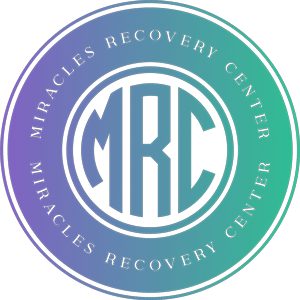Rehab for Young Adults

Purpose, Direction, and Lasting Recovery for Young Adults
The transition into adulthood can be filled with uncertainty, pressure, and emotional challenges. For many, these stressors can lead to substance use or mental health struggles. Our Rehab for Young Adults program helps individuals ages 18 to 30 find clarity, confidence, and stability through structured, compassionate, and evidence-based treatment.
At Miracles Recovery, young adults gain more than sobriety — they gain life skills, personal insight, and a renewed sense of direction.
Why Young Adults Need Specialized Care
Addiction and mental health issues often take root during young adulthood. Academic pressure, identity struggles, trauma, or lack of coping skills can all play a role. Our age-specific program helps young adults understand themselves, develop emotional intelligence, and build resilience to thrive beyond treatment.
Common Challenges We Address
- Substance use beginning in high school or college
- Anxiety, depression, or trauma-related disorders
- Loss of motivation, purpose, or direction
- Family conflict and boundary issues
- Co-occurring mental health and behavioral conditions
- Difficulty adjusting to adult responsibilities
Program Overview
The Rehab for Young Adults track operates within our PHP, IOP, and Outpatient levels of care, ensuring continuous clinical support while allowing flexibility for education, work, or life transitions.
Program features include:
- Comprehensive clinical and psychiatric evaluation
- Individual therapy focused on motivation, self-discovery, and confidence
- Group sessions that promote connection and peer accountability
- Family therapy to rebuild communication and mutual understanding
- Life coaching and goal-setting support
- Holistic wellness activities for physical and emotional balance

Therapies and Clinical Methods
Our team combines proven therapies with interactive, engaging strategies that resonate with young adults.
Therapies include:
Cognitive-Behavioral Therapy (CBT)
to reframe thinking and reduce self-defeating behaviors
Dialectical Behavioral Therapy (DBT)
for emotion management and stress tolerance
Motivational Interviewing (MI)
to strengthen purpose and self-direction
Trauma-informed therapy
to process difficult experiences safely
Experiential and holistic therapies
including mindfulness, fitness, and creative expression
Psychiatric care
and medication management for co-occurring disorders
Life Skills and Development
Recovery is about more than avoiding substances — it’s about learning to live. Our program equips young adults with essential life skills for independence and success.
Life Skills Include:
- Time management and organization
- Communication and relationship building
- Employment readiness and financial literacy
- Healthy lifestyle routines (nutrition, sleep, exercise)
- Goal setting and self-accountability

Why Young Adults Choose Our Program
- Age-specific therapy tailored to the challenges of early adulthood
- Licensed clinicians experienced in youth-focused treatment
- Integration of mental health, addiction, and life skills training
- Flexible day and evening schedules for students and professionals
- In-network insurance and transparent financial guidance
- Supportive peer community and strong alumni network
What To Expect
Clinical assessment
to identify goals, needs, and readiness for change.
Customized plan
integrating therapy, psychiatry, and life coaching.
Structured schedule
of individual and group therapy sessions.
Active engagement
in skill-building, accountability, and holistic care.
Aftercare and alumni
connection for continued personal growth.
